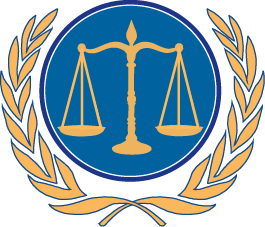Chapter 11
In today’s uncertain economic times, anyone can find themselves in financial difficulty. If you own a viable business or you are an individual with a high than average debts and income, but you also need some financial breathing room and an opportunity to restructure your debts, Chapter 11 bankruptcy can be a valuable legal tool.
Chapter 11 Bankruptcy exists to allow corporations, partnerships, LLCs, sole proprietorships, and high income individuals to reorganize their debt obligations. For business entities, a Chapter 11 bankruptcy typically is used when the entity wishes to restructure its debt and continue operating. (A Chapter 7 bankruptcy would usually be used if the entity wished to liquidate its assets and dissolve at the conclusion of the bankruptcy.) For individuals, a Chapter 11 bankruptcy is used when the individual’s debts exceed the limits established for Chapter 13 bankruptcies.
Under Chapter 11, the debtor proposes a reorganization plan generally provides for repayment of secured loans over an extended period of time or over the useful life of the collateral. Interest rates on loans may be adjusted to be within “market rate.” The plan also may call for unsecured creditors to be paid less than the full amount of their claims in full satisfaction of their claims.
The reorganization plan is voted on by certain creditors whose contractual rights are modified or who will be paid less than the full value of their claim pursuant to the proposed Plan. If the debtor’s creditors approve the plan, the bankruptcy court conducts a plan confirmation hearing.
Assuming the plan is confirmed, the debtor and all of its creditors are bound by the terms of the confirmed plan going forward. The bankruptcy court’s order of confirmation also officially discharges or cancels all of the debtor’s debts, unless the debt was specifically excepted by the court.
Chapter 11 bankruptcy offers many benefits to a financially strapped debtor. The most important include the automatic stay and debtor in possession status:
- Automatic Stay – Immediately upon the filing of a Chapter 11 bankruptcy petition the“automatic stay” comes into effect by operation of law. The automatic stay stops creditors from beginning or continuing most actions against the debtor, including collection activities, foreclosures, repossessions, lawsuits, and attempts to collect on judgments. This gives the debtor breathing room to assess the situation and work to make the necessary changes to improve its financial situation.
- Debtor In Possession – One of the greatest benefits of filing for Chapter 11 relief is that, under most circumstances, the debtor gains an additional identity called the “debtor in possession” commonly referred to as the “DIP”. When a debtor remains as debtor in possession, the debtor continues to make business decisions and retains control over all of the business’s assets throughout the duration of the bankruptcy. As the debtor in possession, the debtor can restructure its debts using many of legal powers that a trustee would have, and has the ability to:
- examine and object to claims against the debtor;
- hire (with court approval) accountants, attorneys, appraisers, auctioneers, and other necessary professionals to help the debtor as needed during the bankruptcy case; and set aside (or avoid) certain transactions that happened prior to the filing of the
bankruptcy case, including contracts and leases. - Filing for Chapter 11 bankruptcy can be a very useful legal tool for a business or individual that needs breathing room to reorganize debt and get a fresh financial start. Our knowledgeable and experienced bankruptcy attorneys can help you with all aspects of your Chapter 11 reorganization, including plan development, asset management, loan restructuring, creditor treatment, and all other bankruptcy court compliance requirements so that you can get yourself or your business back on the track to profitability.

